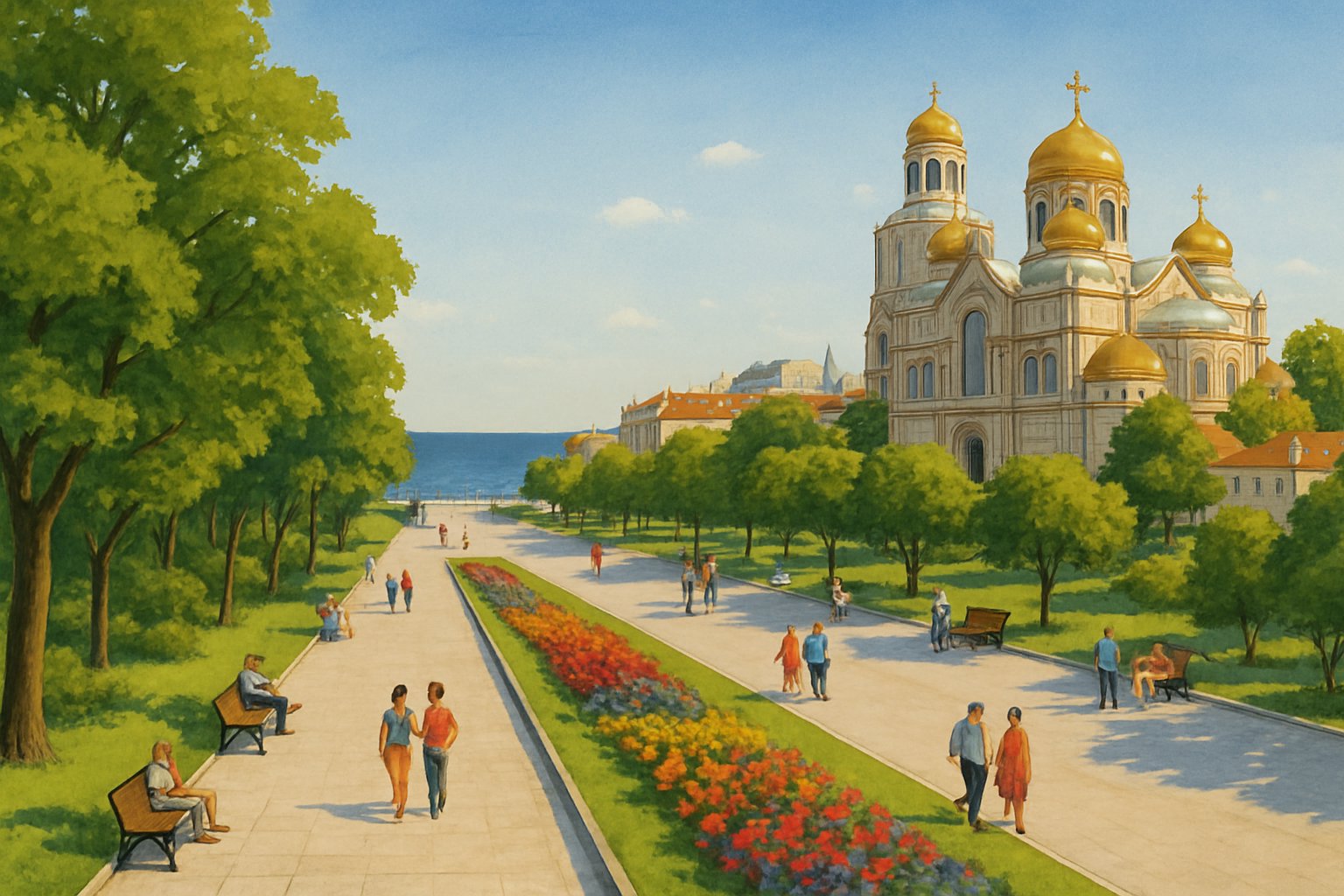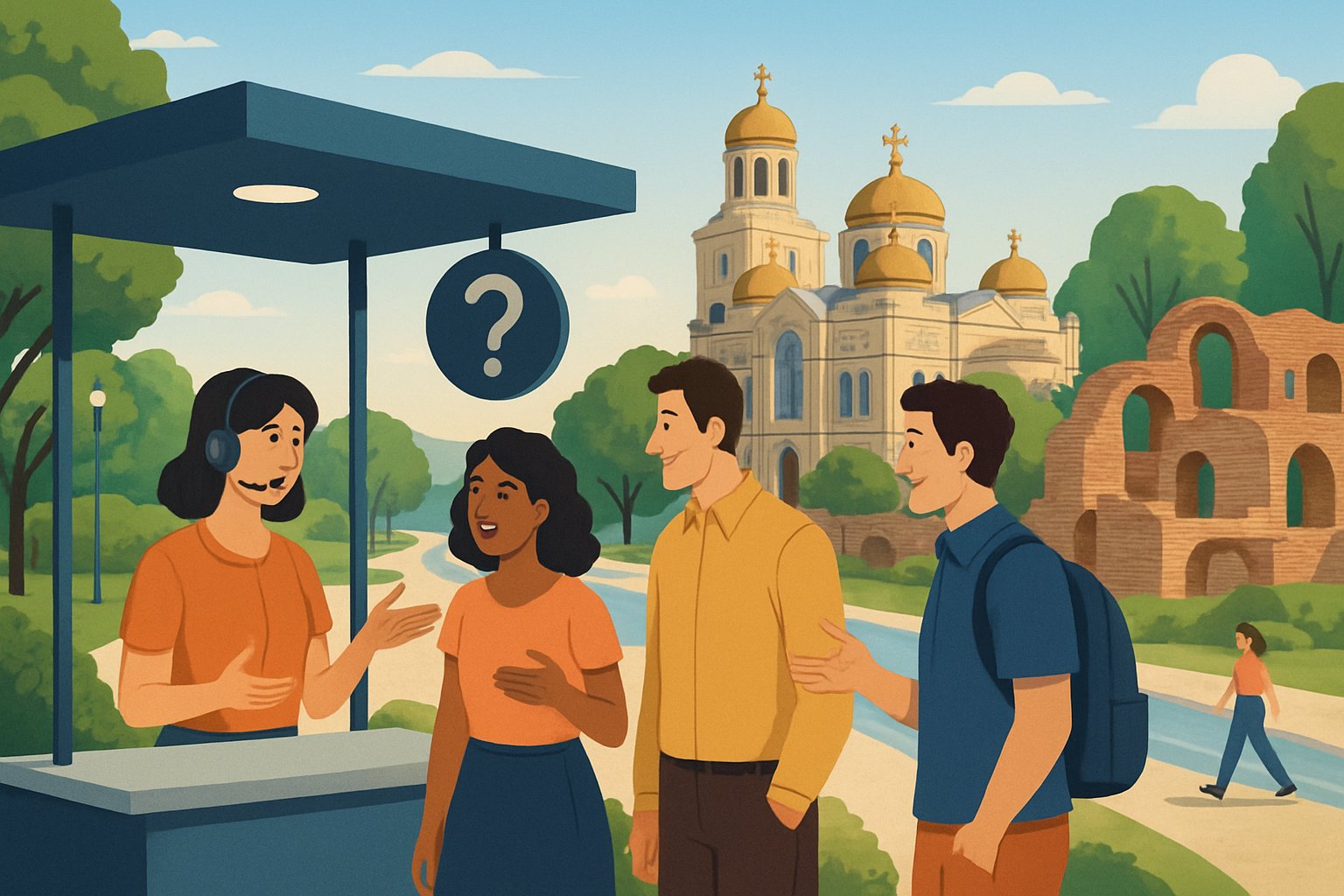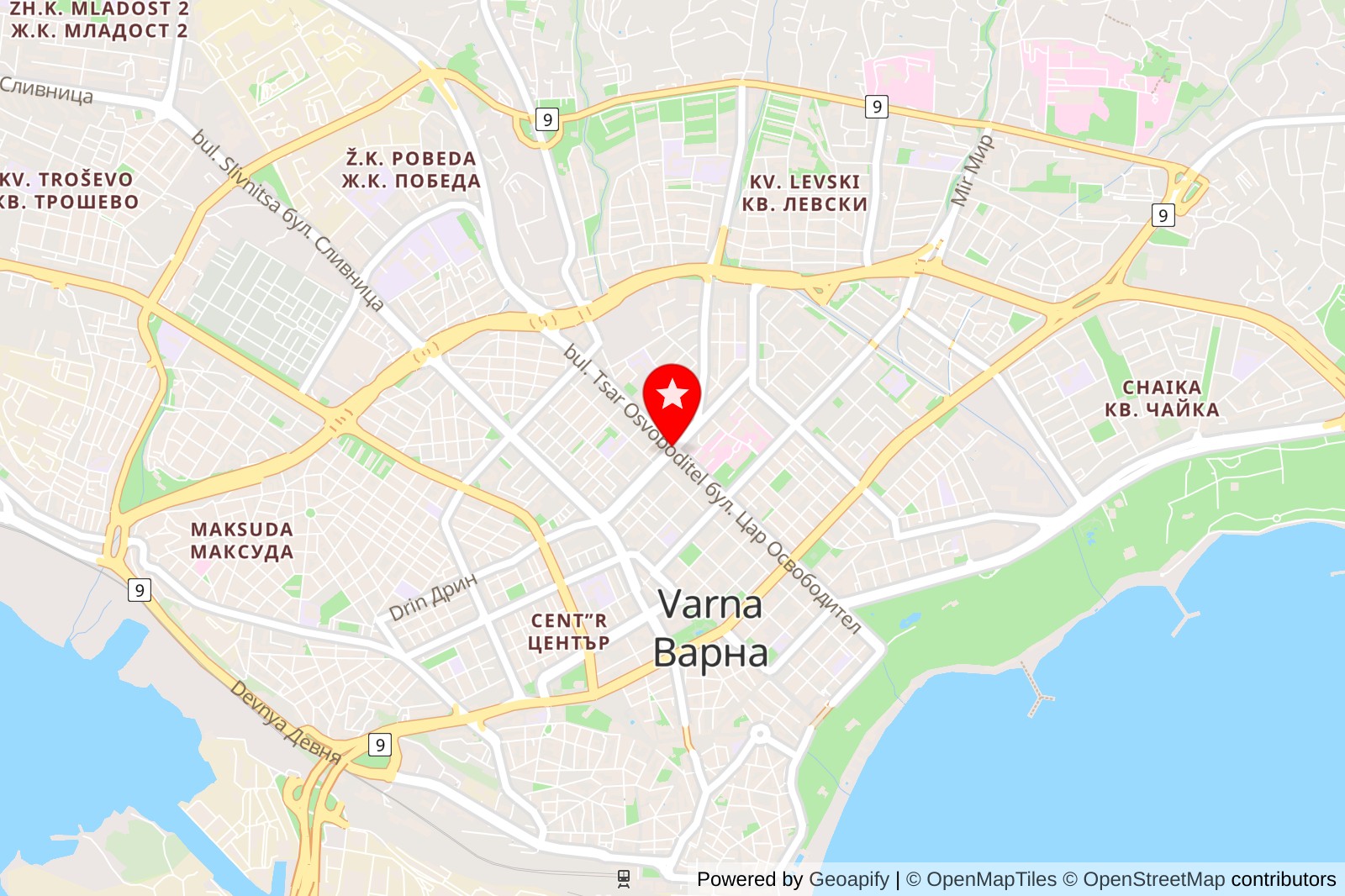Varna is Bulgaria’s third-largest city and the main gateway to the country’s Black Sea coastline.
This coastal spot mixes ancient history with modern seaside energy, making it one of Bulgaria’s most intriguing places to visit.

From its roots as an ancient trading hub to its role now as a cultural center, Varna gives you a real taste of Bulgarian coastal life.
You’ll find world-class attractions, natural beauty, and a city that’s always got something going on.
1) Varna
Varna sits right on Bulgaria’s Black Sea coast.
It’s the country’s third-largest city, and honestly, it feels like the perfect blend of beach vibes and deep history.
People have lived here for over 2,500 years.
The Greeks settled first, and you can still pick up on their influence.
We wandered through spots where Roman baths once stood and checked out museums packed with treasures from all sorts of eras.
Varna’s beaches stretch for miles.
The Black Sea water stays warm in summer, making it ideal for swimming.
We loved how you can find both lively beach areas and quieter patches where locals chill out.
The current mayor, Blagomir Kotsev, took office in November 2023.
He studied business in Washington, shipping in London, and then came back to lead his hometown.
Location: Varna, Bulgaria
Website: Visit Website
History and Heritage of Varna
Varna’s history stretches back over 6,000 years, starting with Greek settlers who founded Odessos.
The city grew into a major Roman hub and kept evolving under different influences.
Ancient Origins and Archaeological Sites
Varna traces its roots to the 6th century BCE, when Greek settlers founded Odessos.
This ancient port became a big deal for trade on the Black Sea.
The Romans later turned Odessos into a bustling hub.
You can still see impressive remains from that period, like the Roman Thermae (baths) that really show off the city’s importance back then.
Archaeologists have found evidence of people living here thousands of years before the Greeks.
The Archaeological Museum in Varna displays artifacts that tell these stories.
The Slavs gave the city its current name—Varna.
It first popped up in records when Khan Asparuh founded the First Bulgarian Kingdom in 681.
Cultural Influences Through the Centuries
In the 13th and 14th centuries, Varna turned into a thriving commercial port.
Genoese merchants kicked things off, then Venetian and Ragusan ships followed.
The Ottoman era changed the city a lot.
After centuries under Ottoman rule, Varna played a key role in Bulgaria’s path to independence.
The 19th century brought new life to Varna.
That railway really sparked a trade revival.
Banks, hospitals, schools, churches, and community centers sprang up, helping to shape Bulgarian identity.
Local Life and Modern Culture
Varna’s cultural scene feels like a mashup of old traditions and new creative energy.
The city’s food scene brings together classic Bulgarian flavors and international bites, so you won’t get bored.
The arts scene and festivals keep things lively all year, and there’s always something tasty to try.
Vibrant Arts and Music Scene
Varna’s arts community buzzes with festivals and cultural events.
The city puts on some pretty inventive festivals mixing music, film, video art, poetry, and theater.
We love the café culture here—great for people-watching and soaking up the local vibe.
Cafés double as social hubs where modern Varna residents connect.
The city’s cultural calendar is packed with all kinds of art.
Tech and creativity often collide, making for some unique experiences.
Key Cultural Activities:
- Music festivals with a twist
- Contemporary theater and dance
- Video art installations
- Poetry events
Local artists team up to blend traditional Bulgarian heritage with modern styles.
That mix gives you a genuine sense of the city—rooted in history, but always moving forward.
Traditional Cuisine and Dining Experiences
Bulgarian food in Varna is hearty and full of flavor.
You get a real sense of the country’s farming roots through its dishes.
Restaurants and markets serve up authentic tastes.
Being on the Black Sea, Varna’s menus feature fresh seafood all the time.
You’ll find grilled fish, seafood stews, and classic Bulgarian recipes with a coastal spin.
Popular Local Dishes:
- Shopska salad—tomatoes, cucumbers, peppers, sirene cheese
- Banitsa—flaky pastry with cheese
- Kebapche—spiced grilled meat rolls
- Fresh Black Sea fish—prepared the old-school way
Dining ranges from casual taverns to fancier spots.
A lot of places offer outdoor seating, which is perfect for those breezy evenings.
Markets are fun for sampling local products and chatting with vendors.
You get a peek into daily food life and seasonal specialties that make Varna’s cuisine stand out.
Frequently Asked Questions

Here are answers to the questions people ask most about visiting Varna.
From top sights and beaches to weather and booking tips, let’s get into it.
What are the top attractions to visit in Varna?
It’s a gorgeous seaside park, perfect for a stroll.
The Varna Archaeological Museum displays amazing artifacts from the city’s long history.
Aladzha Monastery is pretty fascinating, carved right into the cliffs.
The Roman Thermae ruins give you a sense of how important Varna was back in the day.
Dolphinarium Varna is fun for families, with marine shows.
Ovech Fortress offers panoramic views and a dose of medieval history.
How can I find the best flight deals to Varna?
Book flights to Varna Airport about 2-3 months ahead for better prices.
It’s smart to compare rates on different booking sites and airlines.
If you can, travel during late spring or early fall when fewer people are flying.
Flexible date searches often uncover cheaper days to fly.
Sometimes, booking a package with flights and accommodation saves money.
What is the population of Varna?
Varna has around 335,000 people in its metro area.
It’s the unofficial capital of Bulgaria’s northern Black Sea coast.
The city’s big enough to feel lively but not overwhelming.
In summer, the population jumps as tourists pour in.
Can you recommend some popular beaches in Varna?
The main city beach runs along the Sea Garden.
It’s easy to reach, with restaurants and facilities close by.
You’ll find golden sand and calm water—great for families.
Galata Beach, south of the center, stretches longer and tends to be less crowded.
It has both free and paid sections, so you can pick your vibe.
Trakata Beach, north of Varna, is more rugged with cliffs and rocks.
It’s ideal if you want a quieter, more natural spot.
What’s the climate like in Varna throughout the year?
Varna’s got a temperate continental climate.
Summers are warm, usually 25-30°C (77-86°F), which is perfect for the beach.
Winters are mild, with temps around 5-10°C (41-50°F) and the occasional dusting of snow.
Spring and fall feel pretty comfortable, usually between 15-20°C (59-68°F).
The Black Sea keeps temperatures from getting too extreme.
Rain mostly falls in late autumn and winter, while summers stay mostly dry.
Could you share some interesting trivia about Varna?
Varna claims the world’s oldest processed gold, over 6,000 years old. You can see it at the Archaeological Museum—it’s honestly pretty mind-blowing.
The city’s name comes from the Slavic word “var,” which means heat or boiling water. People probably named it after the local hot springs.
Back in the day, ancient Greeks and Romans called the place Odessos. It served as a bustling trading port for centuries.
Varna throws one of Eastern Europe’s biggest summer festivals. International performers flock there, and the crowds are huge.
The city’s Dolphinarium opened in 1984 and was the first in the Balkans. That’s still a point of pride for locals.

